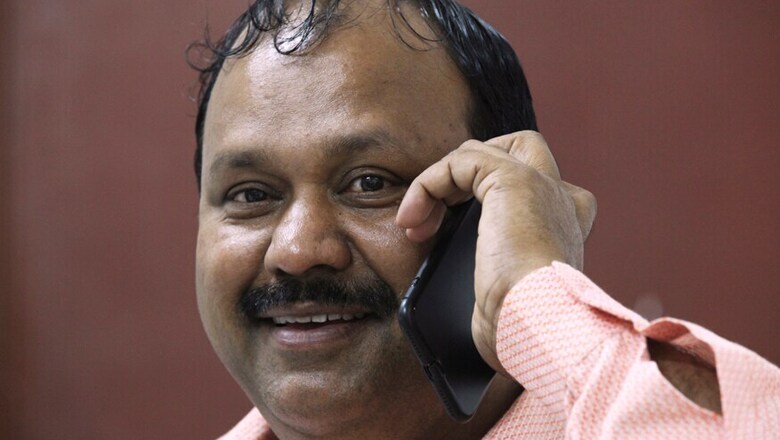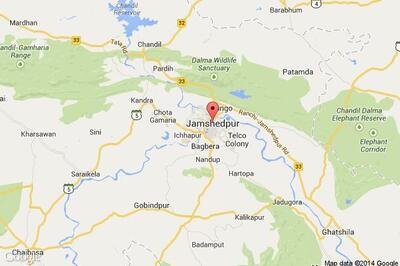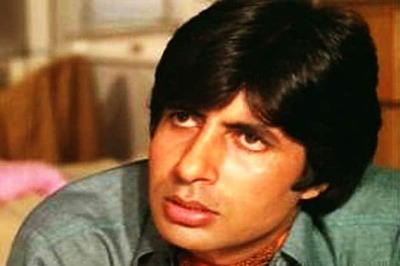
views
Ajman, United Arab Emirates: Away from the cameras' flash and the eyes of her millions of fans in India, the actress Sridevi’s body made its way to a simple mortuary in the United Arab Emirates, where one man helped sign out her remains to return home.
Listed only as “ASHRAF" on the official paperwork in Dubai is Ashraf “Sherry" Thamarassery, a 44-year-old Indian from Kerala who has become a ferryman of sorts for those who die here in the United Arab Emirates.
From indebted laborers to the moneyed elite, Thamarassery has helped repatriate 4,700 bodies to 38 countries across the world. He views it as a noble responsibility in this desert sheikhdom that draws so many far from their homes, chief among them his compatriots.
“For them, you or me, it’s all the same and everyone is equal. If someone dies in their room, they will take them to the hospital and then to be checked at the police mortuary," Thamarassery told The Associated Press in an interview late Tuesday night. “It’s the same process, whether Dubai or Sharjah or any emirate... Whether you’re poor or rich, it doesn’t matter."
Sherry offered shrugs when talking about Sridevi, saying he helped repatriate five other bodies Tuesday including the famed Bollywood star. But it’s hard to overstate the power Sridevi had over the imagination of many in India.
Starting out as a 4-year-old child star in south Indian regional movies, she later became known for her impeccable comic timing as well as her dancing skills — a serious asset in a country where song-and-dance melodramas are a movie staple. She appeared in hundreds of films, perhaps most known for her song-and-dance “Hawa Hawai" routine in the 1987 film “Mr. India," in which she joyfully prances around in an almost-elastic set of whirls, twirls and silly faces. She smashed into the male-dominated movie industry to become her own star.
The 54-year-old Sridevi, only known by one name, which means “Goddess" in Hindi, died Feb. 24 in Dubai while in the UAE for a wedding. Police and prosecutors say she drowned in a hotel bathtub after losing consciousness, calling her death accidental. Police officials also have said the actress had alcohol in her system at the time of her drowning.
News of her death dominated India’s newspapers and many television networks, ranging from the restrained to the lurid. One TV station aired a segment showing a reporter talking about her death while laying in a bathtub, while others had computer-generated graphics imagine the scene. Many newspapers chose not to mention the alcohol reports while a hashtag LetHerRestInPeace emerged on social media.
While Indian officials quickly canceled her passport and prepared the other documents, Thamarassery said a needed police clearance slowed Sridevi’s repatriation. He received hundreds of calls from journalists, officials and others in the interim.
When the clearance came, he traveled to a simple government-run mortuary in a dusty neighborhood of squat, square buildings that house some of Dubai’s immense population of foreign workers, many of whom come from South Asia.
There, officials embalmed her corpse as Thamarassery handled paperwork for her and three others. Curious Indian laborers spoke softly among themselves about the actress while standing outside of the mortuary. An ambulance then carried her body to a private jet reportedly sent by an Indian billionaire to take her home to Mumbai to be cremated.
By Tuesday night, Thamarassery returned home to the apartment he shares with his wife and daughter in Ajman, a small, dusty emirate in the UAE that serves as a bedroom community to skyscraper-studded Dubai some 35 kilometers (20 miles) to the southwest. There, Thamarassery runs a mechanics shop but focuses largely on his philanthropic efforts.
Shelf upon shelf in his home bears honors and awards. A framed picture hangs on the wall showing him meeting Indian Prime Minister Narendra Modi.
I do this “to earn blessings, but also when someone dies here, people don’t know how to manage the repatriation procedures," he said. “That’s why I do it."
All the while, his phone never stopped ringing, some of them undoubtedly new calls for his help.



















Comments
0 comment